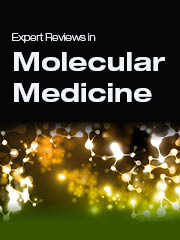Crossref Citations
This article has been cited by the following publications. This list is generated based on data provided by
Crossref.
Ramasawmy, Rajendranath
Cunha‐Neto, Edecio
Fae, Kellen C.
Martello, Fernanda G.
Muller, Natalie G.
Cavalcanti, Vanessa L.
Ianni, Barbara
Mady, Charles
Kalil, Jorge
and
Goldberg, Anna C.
2006.
The Monocyte Chemoattractant Protein–1 Gene Polymorphism Is Associated with Cardiomyopathy in Human Chagas Disease.
Clinical Infectious Diseases,
Vol. 43,
Issue. 3,
p.
305.
Nagib, Patrícia R.A.
Dutra, Walderez O.
Chiari, Egler
and
Machado, Conceição R.S.
2007.
Trypanosoma cruzi: Populations bearing opposite virulence induce differential expansion of circulating CD3+CD4−CD8− T cells and cytokine serum levels in young and adult rats.
Experimental Parasitology,
Vol. 116,
Issue. 4,
p.
366.
Zafra, German
Mantilla, Julio Cesar
Valadares, Helder Magno
Macedo, Andrea Mara
and
González, Clara Isabel
2008.
Evidence of Trypanosoma cruzi II infection in Colombian chagasic patients.
Parasitology Research,
Vol. 103,
Issue. 3,
p.
731.
Scharfstein, Julio
Gomes, Juliana de Assis Silva
and
Correa-Oliveira, Rodrigo
2009.
Back to the future in Chagas disease: from animal models to patient cohort studies, progress in immunopathogenesis research.
Memórias do Instituto Oswaldo Cruz,
Vol. 104,
Issue. suppl 1,
p.
187.
Sturm, Nancy R.
and
Campbell, David A.
2010.
Alternative lifestyles: The population structure of Trypanosoma cruzi.
Acta Tropica,
Vol. 115,
Issue. 1-2,
p.
35.
Junqueira, Caroline
Caetano, Braulia
Bartholomeu, Daniella C.
Melo, Mariane B.
Ropert, Catherine
Rodrigues, Maurício M.
and
Gazzinelli, Ricardo T.
2010.
The endless race betweenTrypanosoma cruziand host immunity: lessons for and beyond Chagas disease.
Expert Reviews in Molecular Medicine,
Vol. 12,
Issue. ,
Hasne, Marie‐Pierre
Coppens, Isabelle
Soysa, Radika
and
Ullman, Buddy
2010.
A high‐affinity putrescine‐cadaverine transporter from Trypanosoma cruzi.
Molecular Microbiology,
Vol. 76,
Issue. 1,
p.
78.
Venegas, Juan
Miranda, Sandra
Coñoepan, William
Pîchuantes, Sergio
Jercic, María Isabel
González, Christian
Gajardo, Marta
Apt, Werner
Arribada, Arturo
and
Sánchez, Gittith
2010.
Microsatellite marker analysis shows differentiation among Trypanosoma cruzi populations of peripheral blood and dejections of Triatoma infestans fed on the same chronic chagasic patients.
Parasitology Research,
Vol. 107,
Issue. 4,
p.
855.
Nascentes, Gabriel Antonio Nogueira
Meira, Wendell Sérgio Ferreira
Lages-Silva, Eliane
and
Ramírez, Luis Eduardo
2010.
Immunization of Mice with aTrypanosoma cruzi-Like Strain Isolated from a Bat: Predictive Factors for Involvement of Eosinophiles in Tissue Damage.
Vector-Borne and Zoonotic Diseases,
Vol. 10,
Issue. 10,
p.
989.
Macedo, Andréa M.
and
Segatto, Marcela
2010.
American Trypanosomiasis.
p.
489.
Marcon, Gláucia E Barbosa
Albuquerque, Dulcinéia Martins de
Batista, Angelica Martins
Andrade, Paula Durante
Almeida, Eros A
Guariento, Maria Elena
Teixeira, Maria AB
and
Costa, Sandra C Botelho
2011.
Trypanosoma cruzi: parasite persistence in tissues in chronic chagasic Brazilian patients.
Memórias do Instituto Oswaldo Cruz,
Vol. 106,
Issue. 1,
p.
85.
Zafra, German
Mantilla, Julio Cesar
Jácome, Jesús
Macedo, Andréa Mara
and
González, Clara Isabel
2011.
Direct analysis of genetic variability in Trypanosoma cruzi populations from tissues of Colombian chagasic patients.
Human Pathology,
Vol. 42,
Issue. 8,
p.
1159.
Schamber-Reis, Bruno Luiz Fonseca
Nardelli, Sheila
Régis-Silva, Carlos Gustavo
Campos, Priscila Carneiro
Cerqueira, Paula Gonçalves
Lima, Sabrina Almeida
Franco, Glória Regina
Macedo, Andrea Mara
Pena, Sergio Danilo Junho
Cazaux, Christophe
Hoffmann, Jean-Sébastien
Motta, Maria Cristina Machado
Schenkman, Sergio
Teixeira, Santuza Maria Ribeiro
and
Machado, Carlos Renato
2012.
DNA polymerase beta from Trypanosoma cruzi is involved in kinetoplast DNA replication and repair of oxidative lesions.
Molecular and Biochemical Parasitology,
Vol. 183,
Issue. 2,
p.
122.
Zingales, Bianca
Miles, Michael A.
Campbell, David A.
Tibayrenc, Michel
Macedo, Andrea M.
Teixeira, Marta M.G.
Schijman, Alejandro G.
Llewellyn, Martin S.
Lages-Silva, Eliane
Machado, Carlos R.
Andrade, Sonia G.
and
Sturm, Nancy R.
2012.
The revised Trypanosoma cruzi subspecific nomenclature: Rationale, epidemiological relevance and research applications.
Infection, Genetics and Evolution,
Vol. 12,
Issue. 2,
p.
240.
da Costa, Thiago Alvares
Silva, Marcos Vinicius
Mendes, Maria Tays
Carvalho-Costa, Tamires Marielem
Batista, Lara Rocha
Lages-Silva, Eliane
Rodrigues, Virmondes
Oliveira, Carlo Jose
and
Ramirez, Luis Eduardo
2014.
Immunomodulation byTrypanosoma cruzi: Toward Understanding the Association of Dendritic Cells with Infecting TcI and TcII Populations.
Journal of Immunology Research,
Vol. 2014,
Issue. ,
p.
1.
Sanches, Tiago L. M.
Cunha, Larissa D.
Silva, Grace K.
Guedes, Paulo M. M.
Silva, João Santana
Zamboni, Dario S.
and
Marinho, Claudio Romero Farias
2014.
The Use of a Heterogeneously Controlled Mouse Population Reveals a Significant Correlation of Acute Phase Parasitemia with Mortality in Chagas Disease.
PLoS ONE,
Vol. 9,
Issue. 3,
p.
e91640.
Lo Presti, M. Silvina
Esteves, Blanca H.
Moya, Diego
Bazán, P. Carolina
Strauss, Mariana
Báez, Alejandra L.
Pizzi, Rogelio
Quispe Ricalde, M. Antonieta
Valladares, Basilio
Rivarola, H. Walter
and
Paglini-Oliva, Patricia A.
2014.
Circulating Trypanosoma cruzi populations differ from those found in the tissues of the same host during acute experimental infection.
Acta Tropica,
Vol. 133,
Issue. ,
p.
98.
Messenger, Louisa A
Miles, Michael A
and
Bern, Caryn
2015.
Between a bug and a hard place:Trypanosoma cruzigenetic diversity and the clinical outcomes of Chagas disease.
Expert Review of Anti-infective Therapy,
Vol. 13,
Issue. 8,
p.
995.
Bonney, Kevin M.
and
Engman, David M.
2015.
Autoimmune Pathogenesis of Chagas Heart Disease.
The American Journal of Pathology,
Vol. 185,
Issue. 6,
p.
1537.
Lo Presti, M. Silvina
Bazán, P. Carolina
Strauss, Mariana
Báez, Alejandra L.
Rivarola, H. Walter
and
Paglini-Oliva, Patricia A.
2015.
Trypanothione reductase inhibitors: Overview of the action of thioridazine in different stages of Chagas disease.
Acta Tropica,
Vol. 145,
Issue. ,
p.
79.




